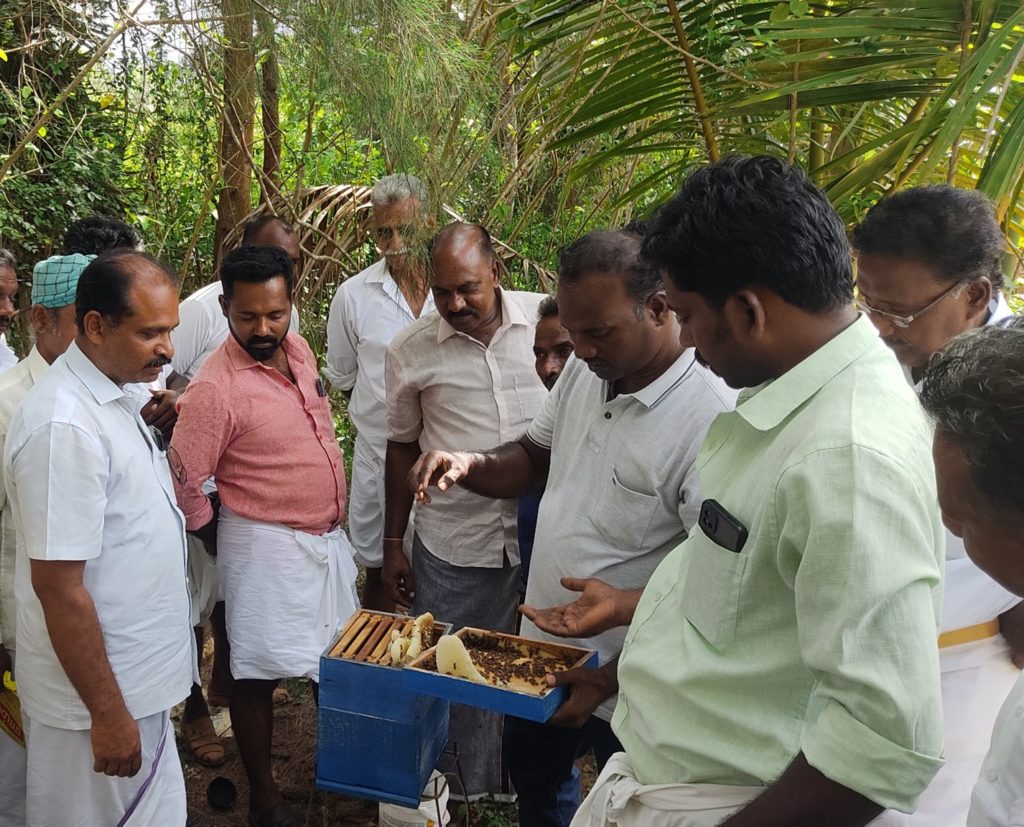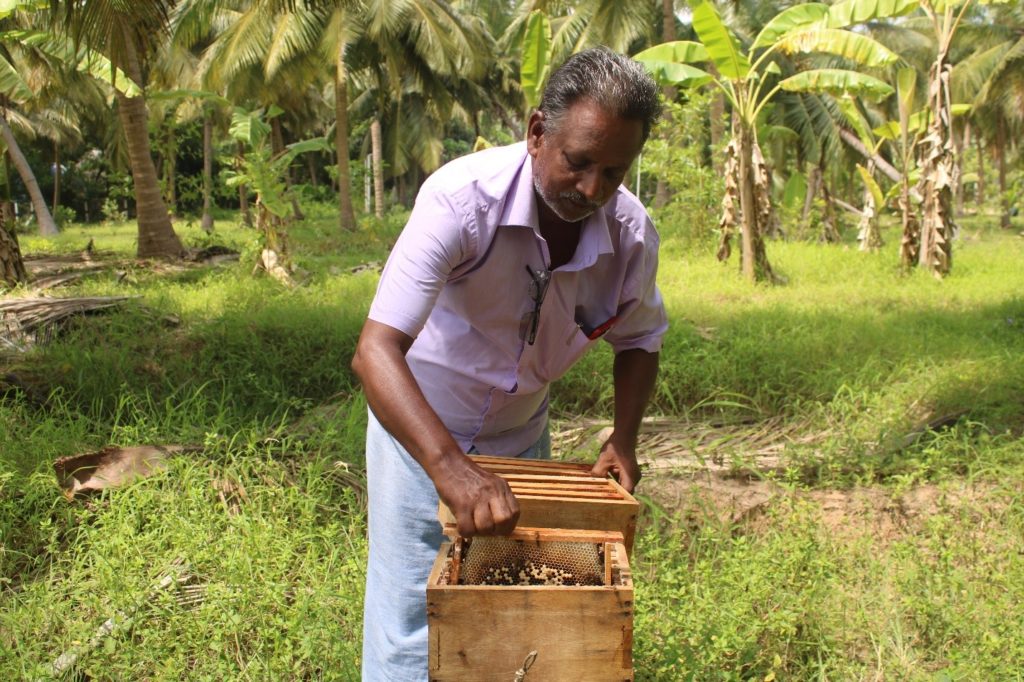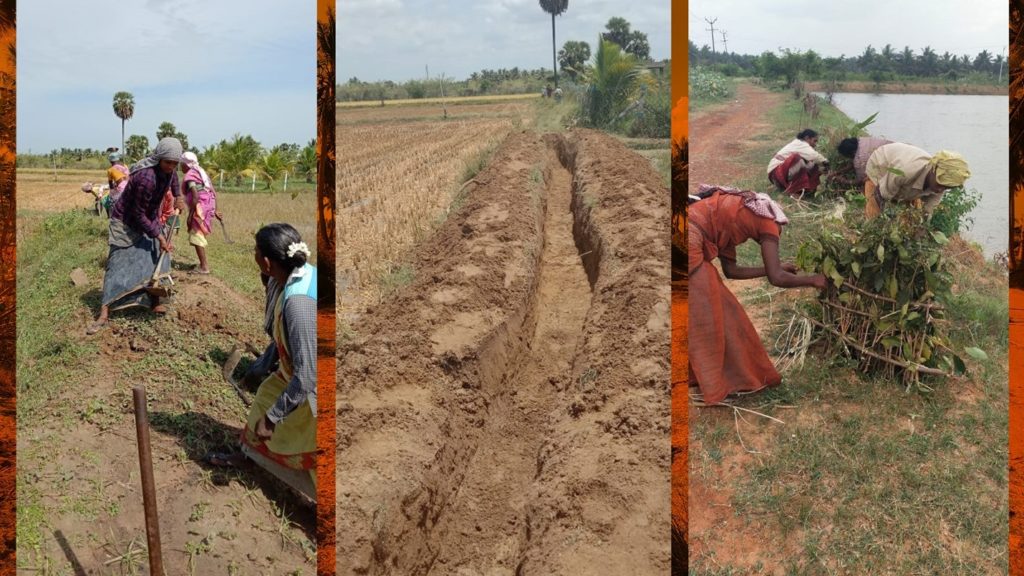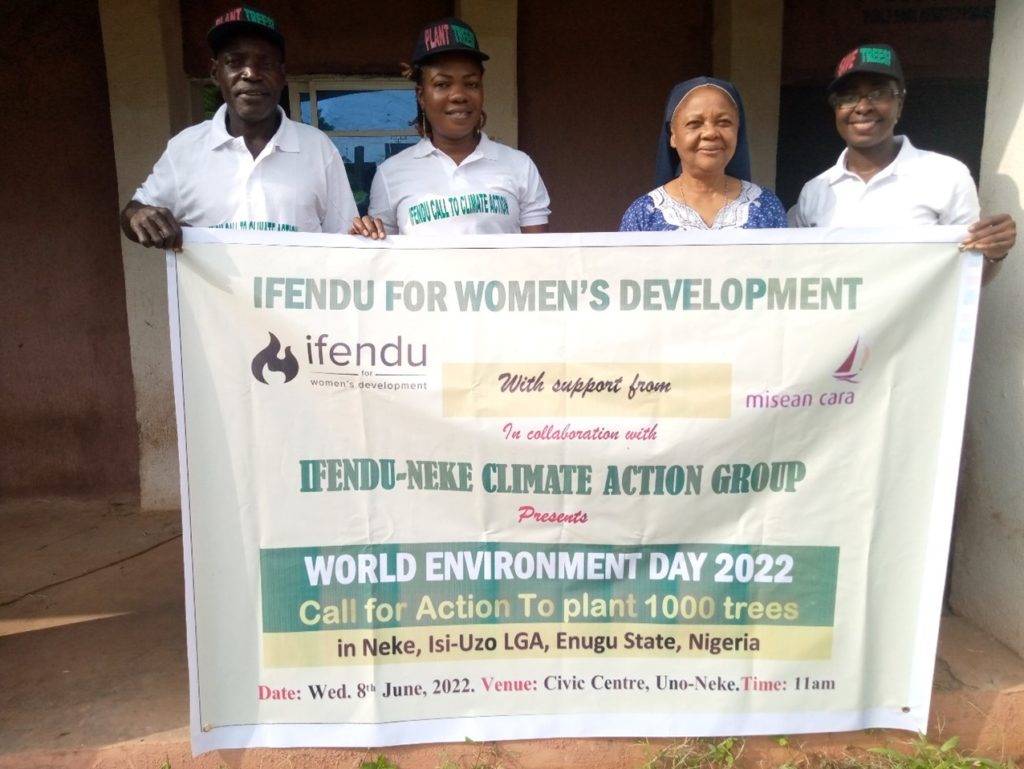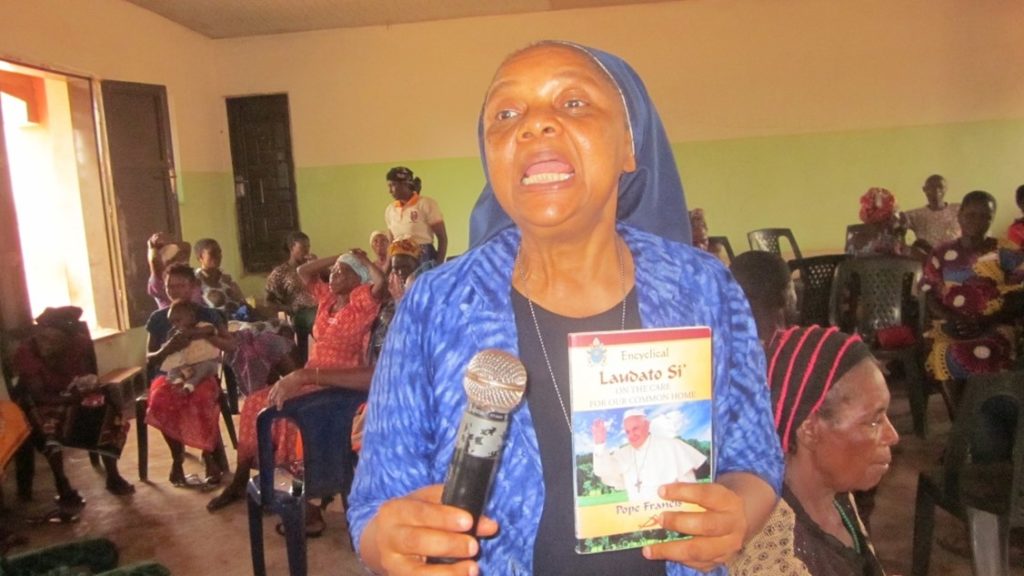Climate Action
2022 Climate Action Awards
In 2022, the Climate Action Awards were announced as the COP27 Climate Summit was in full swing in Sharm El-Sheikh, Egypt. Discussions at the COP27 weighted heavily towards Climate Finance and which nations should be responsible for fairly and swiftly distributing support to communities in the developing world, disproportionately affected by the ravages of Climate Change.
Meanwhile, this year’s Climate Action Awards recognise the initiative and ingenuity of Misean Cara member projects which, at a very local level, are building the climate resilience of communities and helping to ensure a more secure future for those living on the front lines of climate change.
Climate Action Awards 2022
INDIVIDUAL CLIMATE AWARD: Mr. Balasubramanian, Farmer, Athivetti Village, and partner with Salesian Sisters Development Project, Tamil Nādu India.
The 2022 Climate Action Award in the Individual category was awarded to Mr. Balasubramanian, a farmer based in the village of Athivetti, who in partnership with ASSIST, the Social Development Office of the Salesian Sisters of the Trichy Province, has worked since 2018 to train local farmers in sustainable land management and farming methods, as part of a Misean Cara-funded project with an aim to restore sustainable livelihoods, food security, and wellbeing for vulnerable small-scale farmers affected by Gaja Cyclone in Tamil Nādu, India.
Cyclone Gaja-2018
In November 2018, when the severe tropical cyclone Gaja blew across the Bay of Bengal into South India, the villages of Athivetti and Pichinikadu in Pattukottai, Tamil Nadu were especially hard hit. When Gaja made landfall in the region, it came with speeds of up to 175-180kmh. In the coastal communities of Tamil Nadu, 56 thousand hecatres of crops and trees were destroyed, thousands of heads of livestock killed, and since then, permanent flooding has lead to long-term negative impacts on crop success and food security in the area. As well, of the 45 people killed by Cyclone Gaja, eight were villagers living in Pattukottai.
Mr. Balasubramanian, who has completed a twelfth-grade education and a diploma course in Agriculture, volunteered himself to conduct outreach to local farmers and coordinate them in initiatives to restore water harvesting structures as a means to revive the affected farmlands. Initially, when the farmers were hesitant to engage in the recommended organic and traditional farming methods, he took the lead by providing demonstration land to educate and motivate greater participation amongst the farmers.
Climate Resilience Outcomes
As a result of Mr. Balasubramanian’s dedication to climate action and building a sustainable future for the farmers of Athivetti and Pichinikadu villages, there is now a team of 200 farmers (men and women) involved in the farming and soil and water management techniques who are benefitting through the project. Among them, 40 farmers are now engaged in organic, indigenous farming and fertilisation methods better suited to the local environment.
Additionally, 38 farmers have been trained in bee and honey cultivation, provided with honeybee hive boxes to increase the presence of bees in their farms, which assists in the pollination of coconuts, bananas, rice fields, vegetable gardens and fruit groves, all further enhancing and balancing biodiversity in the area and increasing food production over time.
Mr. Balasubramanian is now engaged full time in working with farmers and securing the support of local government Agri-departments in reversing the degradation of ecosystems in the two villages.
Photos: Mr. Balasubramanian, engaged in activities to restore sustainable livelihoods and wellbeing for vulnerable small-scale farmers affected by cyclone Gaja in Tamil Nādu, India. Clockwise from top left: Mr Balasubramanian (right) with Agri Officers inspecting water bodies in Athivetti village Tamilnadu South India; Instructing farmers in beekeeping (2nd & 3rd); Women's Self-Help Group members deepening the irrigation canals of Athivetti village for better storm water run-off, Tamil Nadu, South India
Photo Credit: Salesian Sisters
PROJECT-BASED CLIMATE ACTION AWARD: Irish Jesuits International, Multi-educational and Agricultural Jesuit Institute of South Sudan (MAJIS) Rumbek, South Sudan
The Multi-educational and Agricultural Jesuit Institute of South Sudan (MAJIS), selected for a Project-based Climate Action Award, focuses its efforts on the empowerment of women farmers, emphasising knowledge transfer to strengthen sustainable farming and agricultural practice and appropriate land use.
The project, which first started receiving Misean-Cara funding in 2011 to establish the Institute and develop its curriculum, has trained hundreds of people, most of them women, addressing food insecurity facing 288 villages within Rumbek.
The negative effects of climate change are presenting an urgent and persistent threat to the farmers and families in their programme. The weather in the area is becoming increasingly erratic and unpredictable, with harvest yields dropping by at least a quarter in the past 3 years. Traditional rainy seasons are coming later and later, and farmers are now facing prolonged periods of drought, followed later by flooding rains that ruin their crops. Vulnerable communities, already struggling to meet basic needs, are facing the most devastating effects of the climate crisis.
Deborah Apeth, a farmer in the village of Akol Jal, has several plots of groundnuts, kale and pumpkin. Last year, in 2021, she was expecting rains to begin in late April or early May and so cultivated and planted some crops as usual, however the rains never came. When the rains finally arrived, weeks late and far heavier than normal, it led to floods destroying crops including the pumpkins she had grown. At her home, the level of food security was already low prior to the floods but her situation has worsened as her harvest was destroyed by the rains and now her family has very little to eat.
Field Officers of the MAJIS project are working with women on their farms to help them adopt climate smart, sustainable agricultural practices, guiding and accompanying them from cultivation to harvest.
With the assistance of Misean Cara, MAJIS has accompanied the local farmers with climate smart agricultural practices. This year:
- the farmers were able to harvest high yields of their crops of kale, okra and kudra; enough to feed their families and generate extra income for their households.
- 125 farmers were trained on free range poultry production – including chicken selection, culling, preparing simple chicken coops, composting chicken manure, disease prevention, supplementary feeding and marketing.
- 172 female farmers were trained over 3 days in Akol Jal and Cueicok villages on spacing, pest control, disease control, harvesting techniques and marketing. The farmers were provided with seeds and equipment such as water cans and hoes.
Graduates of MAJIS emerge with the skills that not only empower them by way of knowledge transfer but that also strengthen their livelihoods and earning potential in the face of rapidly occurring climate change.
Watch a video of the MAJIS project here.

Photo: In 2022, 172 female farmers enrolled with MAJIS were trained over three days on crop spacing, pest control, disease control, harvesting techniques and marketing to boost sales of their vegetables. The farmers, most of the women, were also provided with seeds and equipment such as water cans and hoes.
Photo credit: Irish Jesuits International
Project-based Climate Action Award: Ifendu for Women’s Development (Missionary Sisters of the Holy Rosary), Enugu State, Nigeria
The Ifendu for Women’s Development project has been awarded a Misean Cara Climate Award for its work in the Neke, Isi-Uzo area of Enugu State, Nigeria, taking on protection of local biodiversity and environmental preservation using community outreach, advocacy, and on-the-ground community action initiatives.
The project, run by the Missionary Sisters of the Holy Rosary and receiving support from the Misean Cara Innovation Fund, mobilises and engages more than 600 community members through large scale community sensitization and mobilisation for climate action. Climate Action and Laudato Si messaging is delivered at community education meetings and through social media, and other community outreach messaging including posters, banners, and T-shirts distributed to the community.
Ifendu has also set up the Ifendu-Neke Climate Action Group to help sensitise the community and engage with and hold to account the local authorities and community leaders, urging them to enact and implement laws to protect biodiversity and the environment. The group is currently working with the parent body, Ifendu for Women’s Development, to amplify and spread knowledge and are now very actively working together in carrying the Laudato Si messages to every segment of their community, including schools and markets and other organisations.
In addition to advocacy and sensitization, the Ifendu-Neke Climate Action Group is also addressing deforestation (resulting from tree cutting and bush burning), air pollution (from kitchen smoke arising from the use of firewood for cooking in open fire) and improper waste disposal coupled with inadequate knowledge among the people of Enugu State, Nigeria. Ifendu is promoting tree planting and use of energy-saving cook stoves as well as recycling and compost-makings. In 2022 Ifendu hosted a World Environment Day in June, introducing energy-saving cook stoves and a tree-planting ceremony including the donation of 200 tree seedlings to the community to inspire more planting of tees.
Ifendu leaders have also participated at the global advocacy side event of UNANIMA International and UISG (Union of International Superior Generals) during a recent United Nations’ High Level Political Forum, further elevating the reach and audience for their messaging on behalf of communities bearing the brunt of climate change.
Photos (Clockwise from top left): Distributing seedlings to community members; Ifendu Climate Action Group; Ifendu Environmental Group; Laudato Si' education workshop.
Photo Credit: Missionary Sisters of the Holy Rosary

